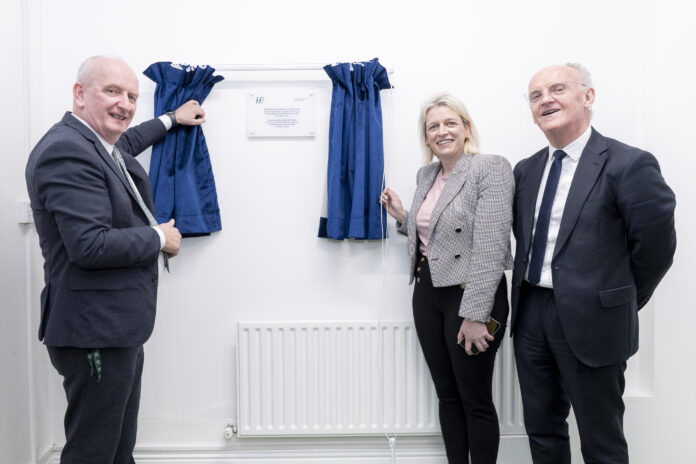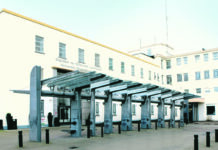
LIMERICK is the location for the first HSE health hub to drive and facilitate research which will help people access to better healthcare.
HSE CEO Bernard Gloster opened the first of the HSE’s new regional research directorates at St Camillus’ Hospital in Limerick, hailing the initiative as a key HSE commitment to advancing the delivery of modern healthcare.
“The best medical care in the world,” Mr Gloster said, “is built upon the latest scientific knowledge, and this knowledge is constantly being added to through research. Healthcare research makes new discoveries, it drives improvement, it makes treatments more effective and processes more efficient.
“Whether its focus is on technology, surgery, medicine, or the patient experience, research helps improve health and social care for our patients and clients, and the HSE, through its regional directorates, is committed to supporting research and embedding it across our services.”
The Research Directorate Mid West, led by Prof Declan Lyons, will oversee all aspects of clinical research within the HSE locally, with the aim of promoting the advance of scientific knowledge and medical treatments.
As a single point of entry for healthcare researchers in the region, the directorate will streamline researchers’ access to professional advice, expert regulatory support, and the infrastructure needed to conduct effective and innovative research.
At the official opening, Prof Lyons said the launch of the directorate was “an important step for the HSE in driving the research agenda forward. In collaboration with our academic partners, our mission in the Mid West is to facilitate reliable, high quality, and innovative research across a range of fields relevant to the people of the locality”.
He cited as an example of such research the recent trial of a comprehensive multidisciplinary assessment of older patients living with frailty who present to the emergency department (ED) at University Hospital Limerick.
Led by consultant geriatrician Dr Aoife Leahy, the research identified key benefits for patients, including reduced wait times in ED, fewer hospital admissions, lower rates of ED re-attendance, and fewer nursing home admissions. Patients also reported better quality of life and function at 180 days.









